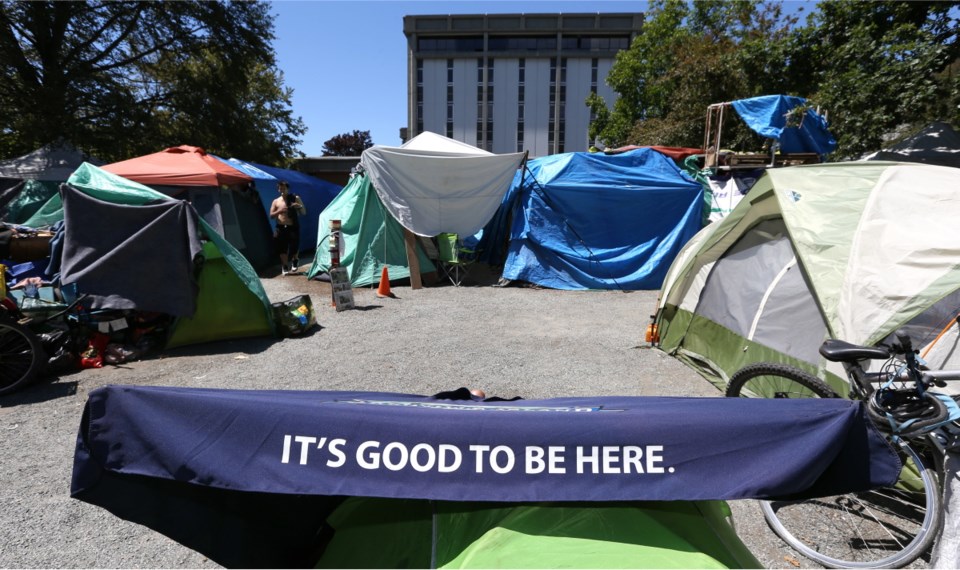The province was in B.C. Supreme Court on Monday with another attempt to dismantle the tent city on the courthouse lawn, starting as early as next week.
Crown lawyer Warren Milman argued on behalf of the province that the camp needs to close based on fire-safety concerns, increased reports of crime and sanitary problems such as garbage and rats.
An earlier decision by Chief Justice Christopher Hinkson allowed the campers to stay unless the province could prove conditions in the tent city had seriously degenerated.
Milman presented multiple volumes containing hundreds of affidavits, as did the campers, describing conditions in the tent city directly outside the courtroom. The affidavits came from police, neighbours, experts on homelessness and advocates on both sides. Few tent city residents were in court.
In addition to dismantling the camp, Milman said the province is proposing a phased approach to moving the campers into transitional housing and the former Baptist Central Care Home when it opens Aug. 8, with 140 units available.
“New housing units have been brought on line … there should be plenty of spaces,” he said.
Milman said the province wanted to start moving some campers into transitional housing, “if [the] fire order requires less people on the site.”
He said Choices, the shelter at the former youth custody centre in View Royal, would make more spaces available by July 4. The province wants to immediately begin compiling a list of the nearly 100 campers at the tent city to track where they will be moved and housed, and to avoid new campers arriving for the purpose of jumping the queue to housing.
“We need to know who’s there and what they have,” Milman said.
Catherine Boies Parker, the lawyer representing the tent city campers along with the Together Against Poverty Society, argued that the government’s request for an injunction to dismantle the camp is premature until housing is available for residents.
“We say, until housing options come on line, nothing has changed,” she said, suggesting it would take at least a few weeks to inform all residents about the housing options and determine who would be willing to go where.
“I don’t know that a court order is the appropriate way to transfer a vulnerable population to housing,” Boies Parker said.
Boies Parker argued conditions at the camp have not degenerated to the level the province has suggested.
“People are trying to comply and could use assistance and resources to together address the fire concerns,” she said, noting the majority of concerns in the first fire order have been addressed.
Boies Parker said the suggestion of increased violence and crime at the camp is not supported by evidence. She said many emergency calls to the camp were for drug overdoses, and the increase in arrests around the tent city coincided with a decrease in arrests around the Rock Bay Landing and Our Place homeless shelters.
“This demonstrates that if [the arrests] are not occurring here, they would be occurring somewhere else. In total, fewer are occurring,” said Boies Parker, who is expected to continue her arguments in court today.



